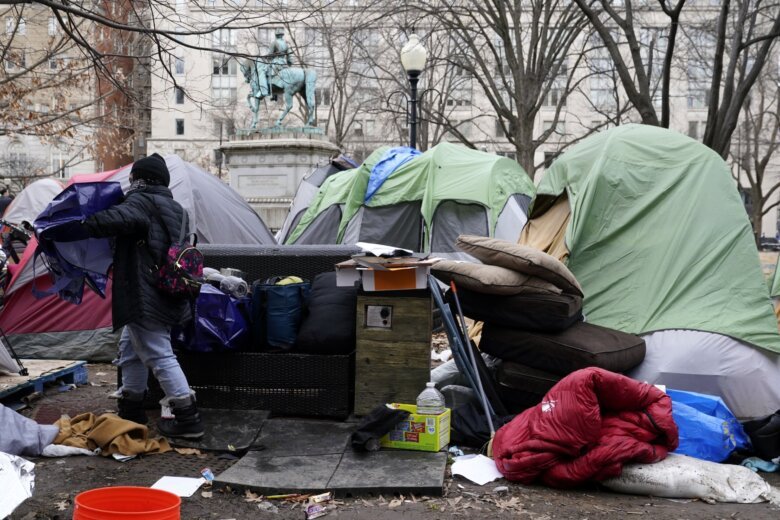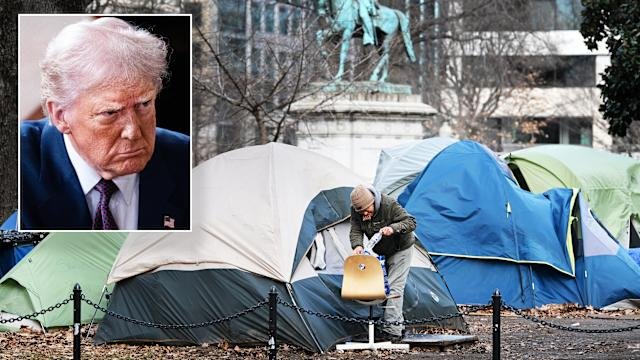Trump Demands Immediate Removal of Homeless People from Washington DC
Trump’s announcement has sparked controversy, with Washington DC Mayor Muriel Bowser pushing back against the White House’s claims that the city is experiencing a crime spike.
According to Bowser, crime rates have actually decreased significantly over the past two years, with violent crime reaching a 30-year low.
Background to the Issue
Last month, Trump signed an executive order making it easier to arrest homeless people, and last week, he ordered federal law enforcement agencies to deploy to the streets of Washington DC.
The move is seen as a response to the city’s ongoing struggles with homelessness, with estimates suggesting that around 3,782 people are homeless in the city on any given night.

The president has proposed relocating homeless individuals to “high-quality” tents on inexpensive land outside cities, where they would have access to basic amenities like bathrooms and medical professionals.
However, details of the plan remain unclear, and critics have expressed concerns about the feasibility and humanity of the proposal.
Official Statements and Reactions
Trump has defended his plan, stating that he wants to make Washington DC “safer and more beautiful than it ever was before.”
He has also announced a news conference for Monday to outline his administration’s plans to address crime in the city.
Mayor Bowser, on the other hand, has described the White House’s comparison of Washington DC to Baghdad as “hyperbolic and false.”
The community organization Community Partnership, which works to reduce homelessness in Washington DC, has highlighted the complexity of the issue, noting that most homeless individuals in the city are already in public housing or emergency shelters, with around 800 people living on the streets.
Constitutional Implications
As a district rather than a state, Washington DC is overseen by the federal government, which has the power to override some local laws.
While the president controls federal land and buildings in the city, he would need Congressional approval to assume federal control of the district.
Recent tensions between the White House and the mayor’s office have raised questions about the limits of presidential authority in the nation’s capital.

